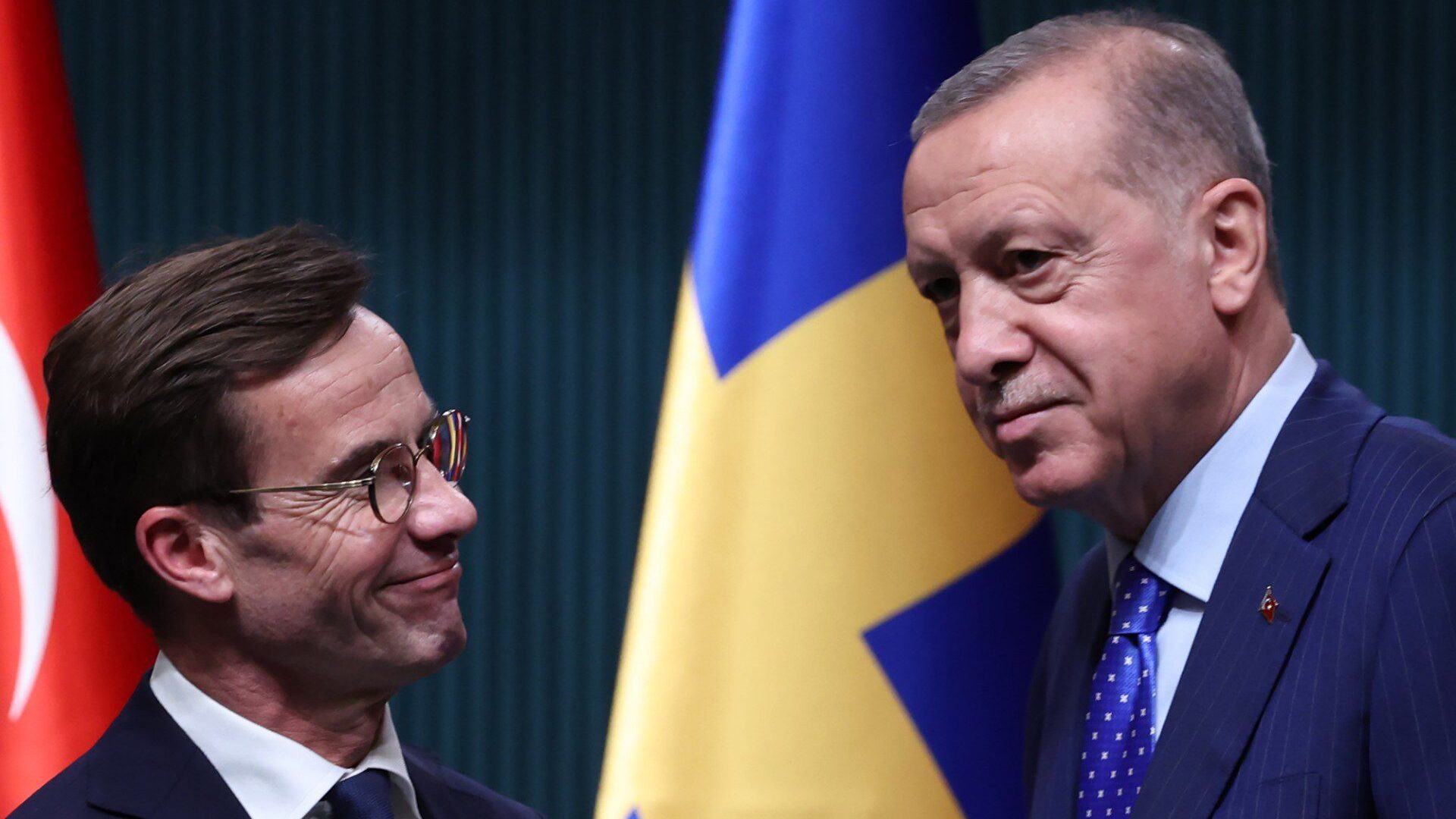
Turkish President Recep Tayyip Erdoğan (R) shakes hand with Swedish Prime Minister Ulf Kristersson (L) during a press conference following their meeting at the Presidential Palace in Ankara on November 8, 2022.
Photo: Adem ALTAN / AFP
Sweden and Finland both applied for entry into the North Atlantic Treaty Organisation (NATO) military alliance in 2022 but so far, only Finland has been given approval this year, with Sweden struggling to convince key members to approve the country for membership.
Primary among the countries against Sweden’s prospective NATO bid is Turkey, which initially claimed last year in May that Sweden supported terrorist groups like the Kurdistan Workers’ Party (PKK), which has carried out many terror attacks in Turkey, killing over 2,000 people, including 609 civilians, since July of 2015.
Islamist Turkish President Recep Tayyip Erdoğan has this week added yet another barrier to Sweden’s entry into NATO, telling the alliance’s chief Jens Stoltenberg that Sweden must stop protests by PKK supporters in the country in order to secure approval from Ankara, a report from Reuters notes.
President Erdoğan slammed Sweden’s new terrorism law that was meant to appease the Turks, saying it was meaningless if PKK supporters could gather and protest.
Sweden’s new terrorism law came into force on June 1st and broadened the prior law to make it illegal to promote, support, or strengthen a recognized terrorist group.
Justice Minister Gunnar Strömmer stated that the new changes would help the country deal with PKK supporters saying, “The PKK is a terror-classified organization and it is clear that activities that organization carries out on Swedish soil, or that are intended to promote or support it—we now have more effective tools to address that.”
The new request from Turkey makes it unlikely Sweden will become a NATO member before the alliance’s meeting in Vilnius on July 11th, which is not surprising as President Erdoğan stated earlier this month that he did not expect the Turkish position to change, despite U.S. Secretary of State Anthony Blinken saying he expected Sweden would become part of NATO by the time of the July summit.
Sweden announced its intention to become a NATO member under the previous left-wing government headed by former Prime Minister Magdalena Andersson, with the Swedish parliament voting for the proposal on May 16th of 2022.
Since then, however, relations between Sweden and Turkey have been somewhat tense and were at their most severe after Danish anti-Islam activist Rasmus Paludan burned a copy of the Islamic Quran in front of the Turkish embassy in Stockholm in January of this year.
Paludan, who has a long history of causing riots in Sweden and elsewhere following his Quran-burning stunts, was slammed by Turkish authorities for his actions, with the Foreign Ministry stating, “We condemn in the strongest terms that the hate crime committed in Sweden against our holy book, the Quran, was allowed to be committed again by the same Islamophobic charlatan in Denmark’s capital Copenhagen today.”
President Erdoğan later demanded that Stockholm ban Quran burning entirely and said, “As long as you allow my holy book, the Quran, to be burned and torn apart, we will not say yes to your entry into NATO. Our view of Finland is positive, but not of Sweden.”
Swedish Foreign Minister Tobias Billström noted that such a proposal would be contrary to Sweden’s freedom of expression and said the government would not compromise on freedom of expression but would honour previous agreements with Turkey to secure NATO approval.
While the government did refuse to ban Quran burning, some Quran burning protests were later stopped by police, who put an indefinite ban on granting permission for such protests in Stockholm due to security concerns.
However, a Swedish appeals court ruled earlier this month that the police did not have the authority to ban the protests or refuse to grant permission as security concerns were not enough to stifle free expression and the right to demonstrate.
Finland, which was accepted into NATO on April 4th, saw similar attempts to burn the Quran earlier this year but police banned the demonstration, as, unlike Sweden, Finland could refer to a law the demonstration would violate.
